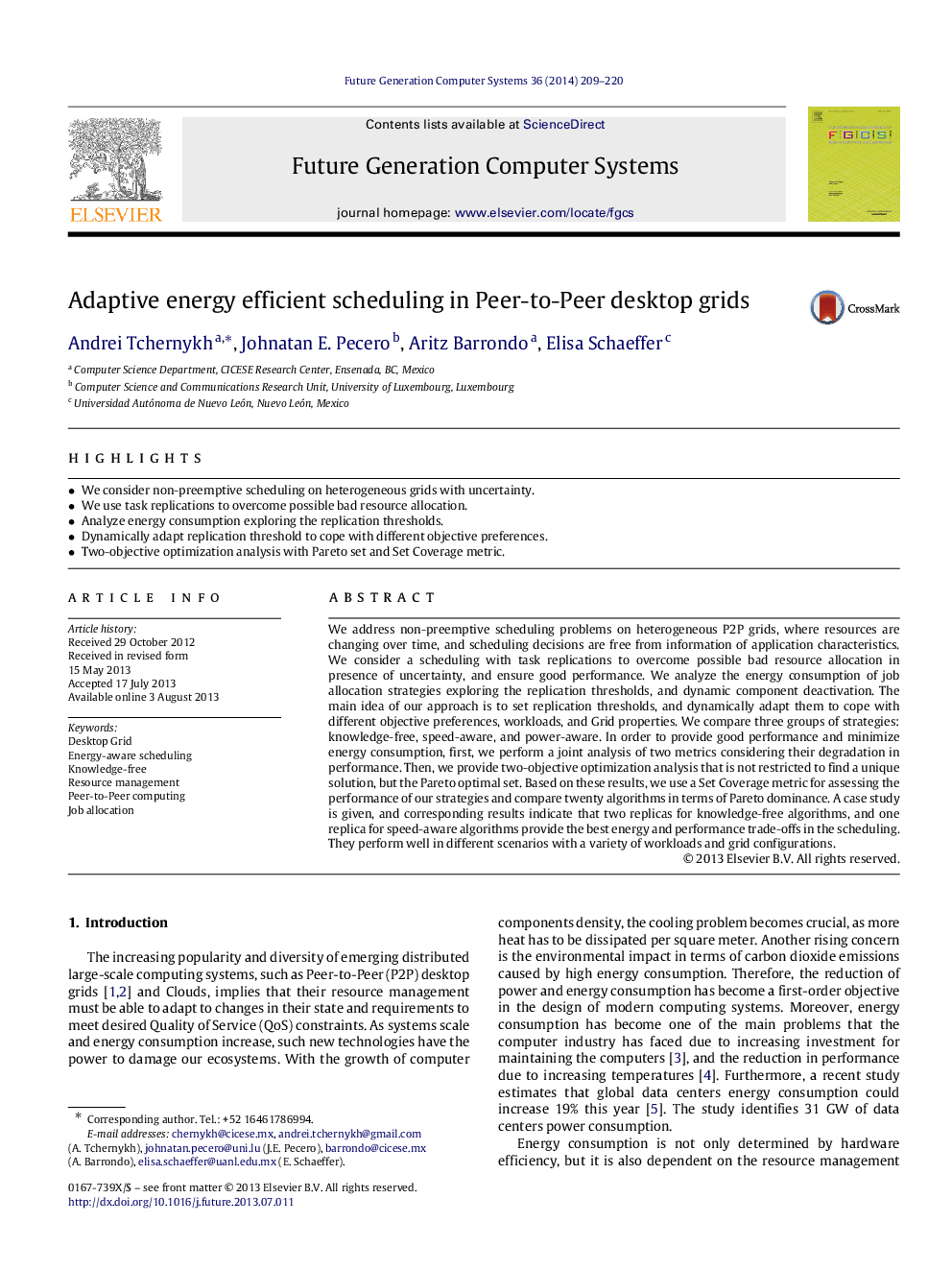| Article ID | Journal | Published Year | Pages | File Type |
|---|---|---|---|---|
| 425258 | Future Generation Computer Systems | 2014 | 12 Pages |
•We consider non-preemptive scheduling on heterogeneous grids with uncertainty.•We use task replications to overcome possible bad resource allocation.•Analyze energy consumption exploring the replication thresholds.•Dynamically adapt replication threshold to cope with different objective preferences.•Two-objective optimization analysis with Pareto set and Set Coverage metric.
We address non-preemptive scheduling problems on heterogeneous P2P grids, where resources are changing over time, and scheduling decisions are free from information of application characteristics. We consider a scheduling with task replications to overcome possible bad resource allocation in presence of uncertainty, and ensure good performance. We analyze the energy consumption of job allocation strategies exploring the replication thresholds, and dynamic component deactivation. The main idea of our approach is to set replication thresholds, and dynamically adapt them to cope with different objective preferences, workloads, and Grid properties. We compare three groups of strategies: knowledge-free, speed-aware, and power-aware. In order to provide good performance and minimize energy consumption, first, we perform a joint analysis of two metrics considering their degradation in performance. Then, we provide two-objective optimization analysis that is not restricted to find a unique solution, but the Pareto optimal set. Based on these results, we use a Set Coverage metric for assessing the performance of our strategies and compare twenty algorithms in terms of Pareto dominance. A case study is given, and corresponding results indicate that two replicas for knowledge-free algorithms, and one replica for speed-aware algorithms provide the best energy and performance trade-offs in the scheduling. They perform well in different scenarios with a variety of workloads and grid configurations.
